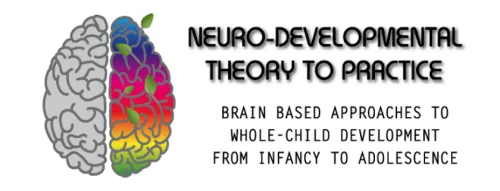NEURO-DEVELOPMENTAL THEORY to PRACTICE | In-house Training
- Friday 1 January 2027
- 1:00 am - 1:00 am
- Your Location
| Customer Rating | 4.8 out of 5 ⭐ |
|---|---|
| CPD Hrs | 7 |
In-house training: This topic can be presented as a keynote or workshop in your workplace, school or community. Email us.
Brain-based Approaches to Whole-child Development from Infancy to Adolescence
Neuroscience is transforming our understanding of being human, from infancy through adolescence and into parenthood, leading to improved practice across all areas of child development and family support. As the need for neuro-scientific knowledge amongst practitioners increases, its convergence with key approaches to attachment, trauma, and learning have seen watershed changes in how we understand and support optimal development, behaviour and social emotional wellbeing. This dynamic new workshop from the best selling author of Hey Warrior, shows how modern practitioners can synthesise the latest (often complex) neurodevelopment research into practical brain based approaches to treatment, education and parenting/ carer support.
Compelling research is supporting the need for practitioners and organisations to shift from older more inflexible behavioural and cognitive approaches to more integrated relational approaches that neuro-nurture young brains to dramatically influence the growth and healing of the developing brain to provide the foundations for a happy, successful life. Practitioners and organisations embracing neuro-nurturing practice see significant shifts in engagement as they begin to understand why correction without connection rarely works and how identifying individual neuro-developmental needs informs how and when to intervene no matter what the age.
Practitioners wanting to take a more compassionate, targeted and effective response when working with children and adolescents, will learn:
- how the brain develops from infancy through childhood and adolescence;
- the needs of children according to their stage of neurodevelopment;
- the importance of attachment in building the strong neural foundations for essential areas of development including the ability to form meaningful relationships, emotional regulation, self-control, empathy, independence, and resilience, and how to build healthy attachments;
- how behaviours and skills are built in the brain and the simple explanation for young people that can build resilience and grit;
- the essential foundations for learning;
- neuroscientific explanations for challenging behaviour;
- why many common behaviour management techniques don’t work, and what to do instead;
- the impact of trauma on the developing brain;
- how the brain changes during adolescence and how these affect mood, behaviour, friendships, relationships, sleep, motivation, self-concept, and decision-making;
- understanding family conflict during adolescence through a neuroscientific lens, and how to strengthen relationships;
- attachment and adolescence;
- how to use our knowledge of the adolescent brain to forge stronger, more meaningful, more influential relationships with adolescents;
- the adolescent brain and social media;
- impulse control and risky behaviour during adolescence;
- anxiety and the adolescent brain;
- the impact of drugs and alcohol on the developing brain, and how to engage and empower young people towards healthier behaviour;
- how addiction happens in the brain (including social media, screens, gaming) and how to explain addiction to young people in a way they will hear;
- how resilience happens in the brain, and how this can be strengthened.
Audience: for mental health and education professionals at all levels & any professional that applies attachment theory and behavioural/developmental/neuro-science to their practice.
Mental Health Professionals: All mental health professionals including, but not limited to Social Workers, Psychologists, Nurses, Occupational Therapists, Youth Workers, Mental Health Workers, Family Therapists, Speech and Language Therapists, Residential Care Workers and Foster Support Worker, Play Therapists, and all other mental health professionals looking to enhance their therapeutic skill with early childhood.
Education Professionals: Professionals who work with children or youth including, but not limited to K–12 School Counsellors, School Paraprofessionals and all other professionals who support behavioural challenges and complex learning needs.











